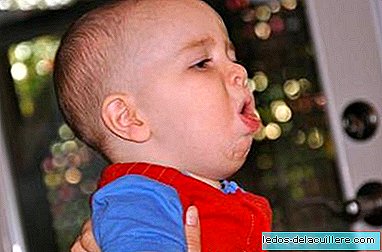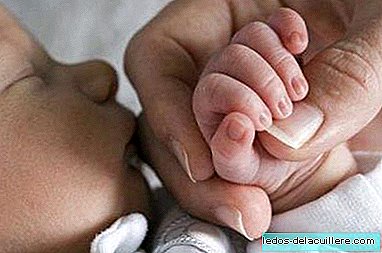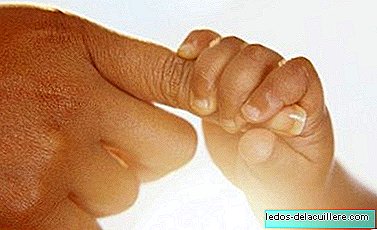
Cough is a reflex that is part of a defense mechanism of the respiratory system, or is a disease in itself, but a symptom, one of the most frequent in children, especially in times of colds. But, What are the types of cough in the child? If we learn to recognize the type of cough, we will be more prepared to act (if it has to be done).
We can distinguish two types of cough: productive or soft cough and irritative or dry cough. When a cough is produced to move mucus somewhere in the respiratory system, it is said to be a productive cough. When there are no mucus, there is talk of irritating cough.
Productive coughs are the most frequent in children, and as they serve to clear the airways, it is not good to strive to eliminate them. The cough makes it possible to expel both the microorganisms that enter through the respiratory tract and the mucus secreted by the bronchial tubes to trap the microorganisms. It is not necessary to treat it, although the throat can be calmed with natural remedies. The cold progresses favorably spontaneously after about seven days.
Irritative or dry coughs They are the least frequent in children, and are due to the environment. In them only air is expelled. In many cases they are due to allergic problems (asthma and allergic rhinitis) and environmental irritants (mainly tobacco smoke and pollution), and are not treated with cough medicines. Dry cough is more annoying, sometimes it hurts the child to not produce expectoration, it tires and irritates. In this case, the pediatrician must determine the cause and prescribe the relevant medication.
There is another type of less frequent cough that is called emetic cough, the one that produces vomiting, also known as "Morton's cough" (seen in pulmonary tuberculosis).
In any case, if the child has a frequent cough, it should be monitored, because in some cases the cough may be a sign of a more serious condition (asthma, allergy, pertussis or a side effect of certain medications ...) and we will have to see a doctor.












